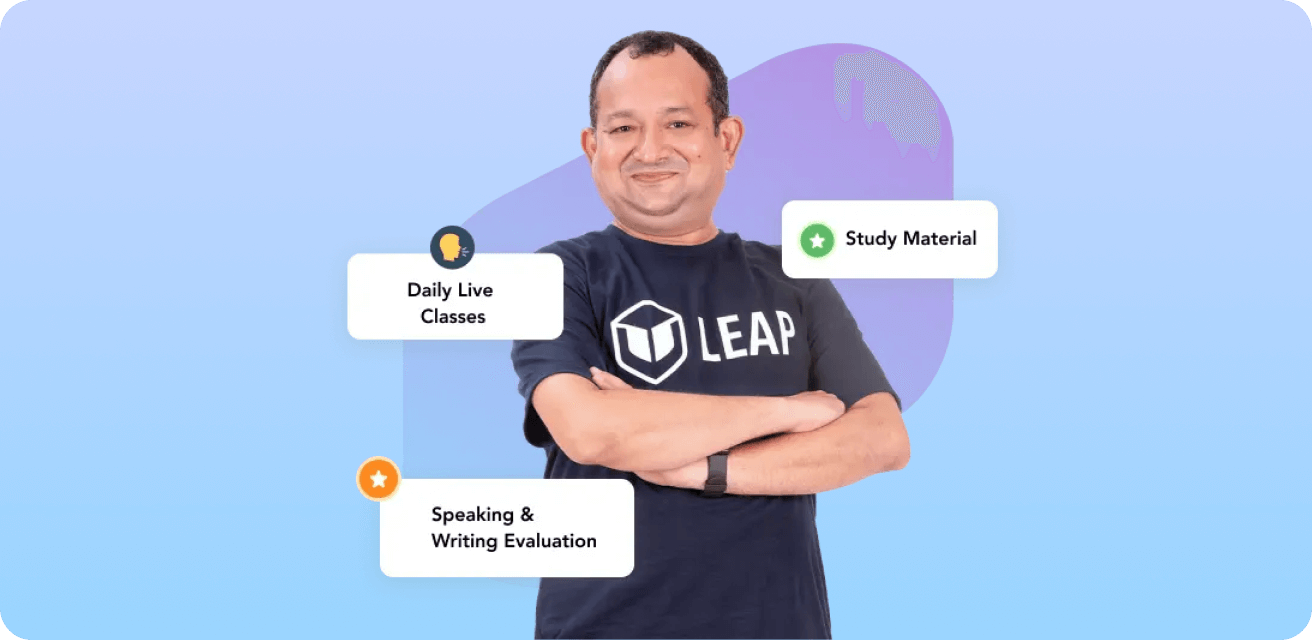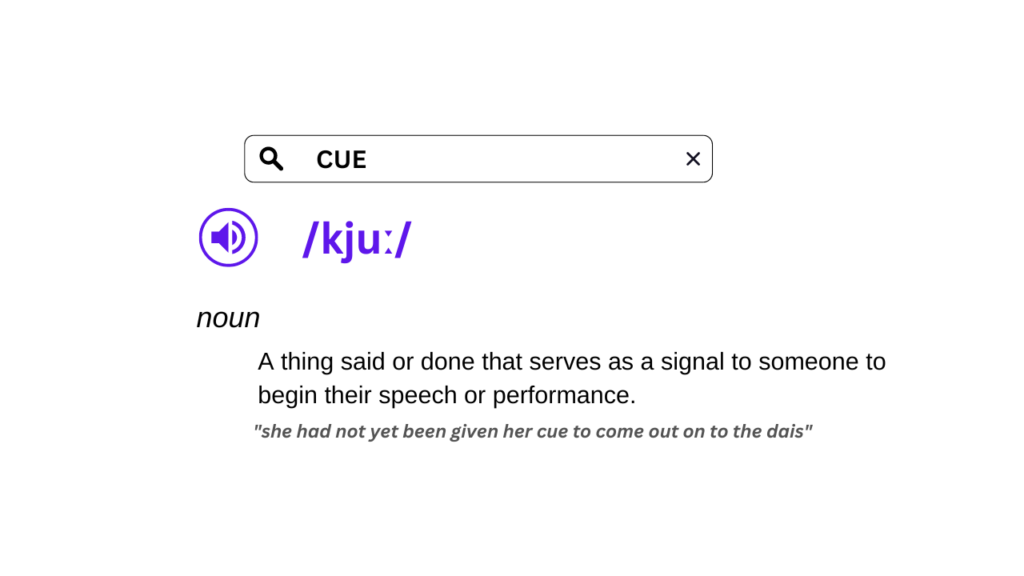The IELTS speaking test is a three-part test that lasts 11-14 minutes. The IELTS cue cards are an integral section of the speaking test and account for the majority of your score.
In this 1-on-1 session, the examiner pays close attention to your pronunciation, fluency, grammar and vocabulary. The test is designed to understand how well you can communicate in English. The best way to score well in this section is to relax, speak clearly and make the most of your time.

Consult IELTS Expert for a Free Personalised Learning Plan
Improve your IELTS speaking score with a 1:1 consultation.
The International Language Testing System or IELTS is a widely accepted English proficiency test. Most universities across the English-speaking world ask for IELTS scores for college or university admissions. It’s also mandatory for employment purposes, permanent residencies and visas.
A good score in the IELTS Speaking test is vital for your overall band score. Thousands of our students have scored above 7 with our IELTS Speaking tips. And this is your chance.
Whether you’re a fluent speaker of English or not, the Speaking section is a walk in the park compared to the other IELTS Speaking sections if you prepare well.
In this article, we’ll explore the IELTS Speaking section, the IELTS Speaking cue cards, and our tried and tested IELTS Speaking tips straight from the experts’ desk.
While you’re at it, here’s an exercise: This article has a lot of idioms. Let’s see how many you can find! Test yourself.
Let’s get started.
Back to Basics: Understanding the IELTS Speaking Test Syllabus
The IELTS speaking test is fairly simple. The pattern remains the same for both IELTS Academic and General modules.
There are 3 divisions: Introduction & Interview, Individual Long term (IELTS speaking cue cards), and a Two-Way Discussion. The second part is the crux of the matter and will be explored extensively in this blog.

Here’s what to expect in each of the sections.
| Part | Duration | Description |
| Part 1: Introduction & Interview | 4-5 Mins | The examiner will pose questions about your family, hometown, work and interests. |
| Part 2: Individual Long Turn | 3-4 Mins | You will be shown a cue card and asked to talk about it. The examiner will allow you to jot down some points about the topic before you start. |
| Part 3: Two-Way Discussion | 4-5 Mins | This is an extension of part 2; you’ll be asked questions related to your cue card. |
Want to learn more about the IELTS exam syllabus? Read: Know All About the IELTS Exam Pattern and Syllabus 2023
What are IELTS Speaking Cue Cards?
The word ‘cue’ is often mistaken for the alphabet ‘Q’, but that’s not the case.

In this context, a cue is a prompt or a topic. Once you get the cue card, you may begin responding to the question/statement/points addressed in the topic.
You may take a minute to jot down some information about the topic when you receive a cue card. This period is called referred to as your ‘think time’. You can refer to these points as you begin.
Once you start, you must speak for at least 2 minutes about the topic. The examiner will stop you when it’s time.
It may sound intimidating to speak non-stop for 2 minutes. But don’t worry. Our IELTS speaking tips will help you ace this section without losing your sleep over it.
But, If you’re still nervous, sign up for our IELTS courses and get 20 hours worth of live classes, 100+ mock tests, speaking and writing evaluations and all the study materials you’ll ever need. The classes are entirely flexible, and you can participate in student discussions on telegram. Seats are limited for every batch, book a free demo and make the right decision.

Want to Score 7+ IELTS Band in 4 Weeks?
5L+ students across India have signed up for Leap’s Masterclass to date.

Want to Score 7+ IELTS Band in 4 Weeks?
5L+ students across India have signed up for Leap’s Masterclass to date.
IELTS Speaking Cue Cards: Key Parameters for Scoring
Pronunciation: The examiner assesses sound linking, intonation, clarity and individual phonic sounds. The goal here is to check if your speech can be easily understood. You must pronounce words clearly, and pay attention to stressing the right letters and silent sounds.
Lexical resource: This criterion assesses your vocabulary range and accounts for 25% of your score. Using different words in the proper context will help you boost your score. You must also make use of collocations and avoid repeating the exact words over and over.
Grammatical Range & Accuracy: Grammar is the most important criterion when it comes to English. The best way to ace this is to perfect the types of sentences and be careful with tenses and other grammatical structures. Here, your ability to form correct sentences is assessed.
Fluency & Coherence: Examiners look for your ability to form thoughts into sentences and speak in a flow without any hesitation or awkward pauses. The speed at which you also speak matters. Pro tip: use plenty of connectors, pronouns and conjunctions where it’s relevant.
To know more about IELTS Scoring, also read: IELTS Band Score 2023: IELTS Scoring System & IELTS Band Score Chart
4 Best IELTS Speaking Tips From Leap’s Experts!
Rely on personal anecdotes
Speak your story. Find a personal connection with the topic, and go on! Personal stories help you speak from the heart, meaning you’re bound to speak more fluently.
However, you must ensure that you stay consistent with the topic.
Focus on one or two main points
Do you ever hear a topic, and the ideas start flooding your mind? Well, that means you’re off to a good start!
Here’s what you must do: shortlist your thoughts to one or two points. These points must be critical to the topic, and you must be able to speak about them confidently. Note down these points during the ‘think time’.
Avoid taking long pauses
If you pause for a couple of seconds to think and answer, it’s absolutely okay. But try to make a comeback quickly. Try your best to not break for too long.
Control the pace of your talk
Be strategic about the pace while talking. Try not to speak too fast. When you are in a hurry, there are chances that you may ‘trip’ on your own words and begin to stammer, breaking the fluency.
And remember, if you speak too quickly, you will have to speak longer to meet the time limit. So, take your time, take quick pauses, and trust your natural flow.
Bonus IELTS Speaking Tips to Score 7+ Band score
Do not memorise responses. Examiners are not impressed by an answer that sounds mechanical.
Take a few seconds to understand what the topic is about.
Note down all the new words you learn, and try to use them in everyday conversations.
In the paper, divide the topics into introduction, transition words, description and perspective.
Do not use unknown words.
Avoid repetition of phrases.
Don’t worry too much about your accent, and avoid faking accents.
Avoid filler words.
Answer questions elaborately rather than answering in a single word.
If you’re aiming for a 7+ band score in IELTS, join the IELTS preparation journey with Leap Scholar, the world’s leading end-to-end study-abroad platform. IELTS app by LeapScholar cover all aspects of the exam. You may use the unique Speaking Rooms in the app to improve your speaking by practising with peers across India. Download the app right away!
IELTS Speaking Tips: Sample Question and Answer
Here’s a model question and answer to help you understand how to respond to your cue card. Take inspiration from this, and prepare your answers for the topics below.
IELTS Speaking Cue Cards
Describe an interesting person you have met recently.
IELTS Speaking Tips: How to Answer
- Who is this person?
- How did you meet them?
- What do they do?
- What makes them interesting?

IELTS Speaking Tips: Sample Answer
There’s no denying that the world is full of intriguing people. Everyone has something captivating about themselves. Something that makes them stand out and look interesting. One such person I met recently is an old man called Ove.
Ove is my 59-year-old neighbour. To the world, he’s a rusty old man who’s just rude. He’s the loudest man in the neighbourhood. Everyone is always walking on eggshells around him. They’re scared that he might yell at them for something they didn’t realise they did! Sometimes, it’s really funny. But mostly, it’s just sad.
You see, Ove lost his wife recently. And people deal with grief differently. I think Ove is just sad and lonely. Sometimes it comes out as angry yelling, but he means no harm.
I’m certain all he needs is a friend, but I think it’s hard for him to admit.
After hearing quite a bit of yelling from Ove every day, I know this much about him: He absolutely hates electric cars, believes computers are stealing people’s jobs, and has been driving the same Saab car all his life.
I find these things both hilarious and interesting about the old man. But, recently, I saw him stop to protect a strange black cat (that he claims he hates) and I found myself thinking that, perhaps, there’s a soft-hearted human inside his cranky exterior. And that, to me, is interesting above all.
Mastering IELTS Speaking Cue Cards: Sample Topics
The topics on the IELTS Speaking cue cards can be about anything. Some of the most popular topics revolving around descriptions of the following topics.
- An event in the past
- A person or an object
- A habit or an experience
- A place
- Hypothetical situations
- Cultural events
- Your favourite things
Here’s another tip: Practice these cue cards daily, and soon you’ll get the hang of answering spontaneous questions.
IELTS Speaking Cue Cards: A list
| Someone you admire |
| An influential person in your life |
| Your favourite singer |
| Your favourite artist |
| Your favourite sportsperson |
| An individual who you find interesting |
| Your favourite teacher in school |
| A risk that led to a positive outcome |
| A childhood event that changed your life |
| A country you would like to visit in the future |
| The best vacation you have ever taken |
| Favourite part of your day |
| A time when you had been late for some work |
| A tourist attraction you visited recently |
| A dream you remember |
| A story your grandparents used to tell you |
| Your experience of the pandemic |
| A leisure activity you enjoy |
| Your favourite meal |
| A photo that you took that you’re proud of |
| Something you bought online recently |
| An event that did not turn out as you expected |
| A situation when you helped someone |
| A website that you often use |
| An aspect of science that interests you |
| Experience in public transport |
| Favourite author |
Also read: Introduction Questions for IELTS Speaking 2023: Latest Sample Q&A
Preparing for IELTS cue cards is a great way to boost your IELTS Speaking scores. With the above strategies and tips, you can aim to score 7 and higher.
Practice every day to improve your fluency. Watch Youtube videos, English TV shows, and movies to build your vocabulary and familiarise yourself with pronunciation. These parameters will boost your scores across all sections of IELTS. Break a leg!
Frequently Asked Questions
-
Can I get a 9 band score in IELTS Speaking test?
Yes, getting band 9 is possible if you follow all our IELTS speaking tips and start preparing early. Try to align your thoughts first and understand what the topic demands from you.
-
Can I ask the examiner questions in the IELTS Speaking test?
You may certainly ask the examiner to repeat the question for easier understanding.
-
Are IELTS Speaking cue cards repeated?
IELTS cue card might be repeated. Cue cards usually get replaced after every 4 months.
-
What to carry for the IELTS Speaking test?
You must carry your passport or identification details that you used during registration.
-
Is 7 band in IELTS Speaking a good score?
In IELTS terms, a band score of 7 means you’re a good user of English.
-
Why is IELTS Speaking test recorded?
Examiners record IELTS speaking to ensure they don’t miss anything and you’re graded correctly.
-
Is it mandatory to speak full 2 minutes in IELTS Speaking cue cards?
It is important to meet the 2-minute time limit. It is okay to stop a few seconds early, but try to get as close as possible to the deadline. If not, you may lose points under fluency.

















Have Questions? Get Guidance to reach your Dream University
Connect with India's finest counsellors and biggest study abroad community.